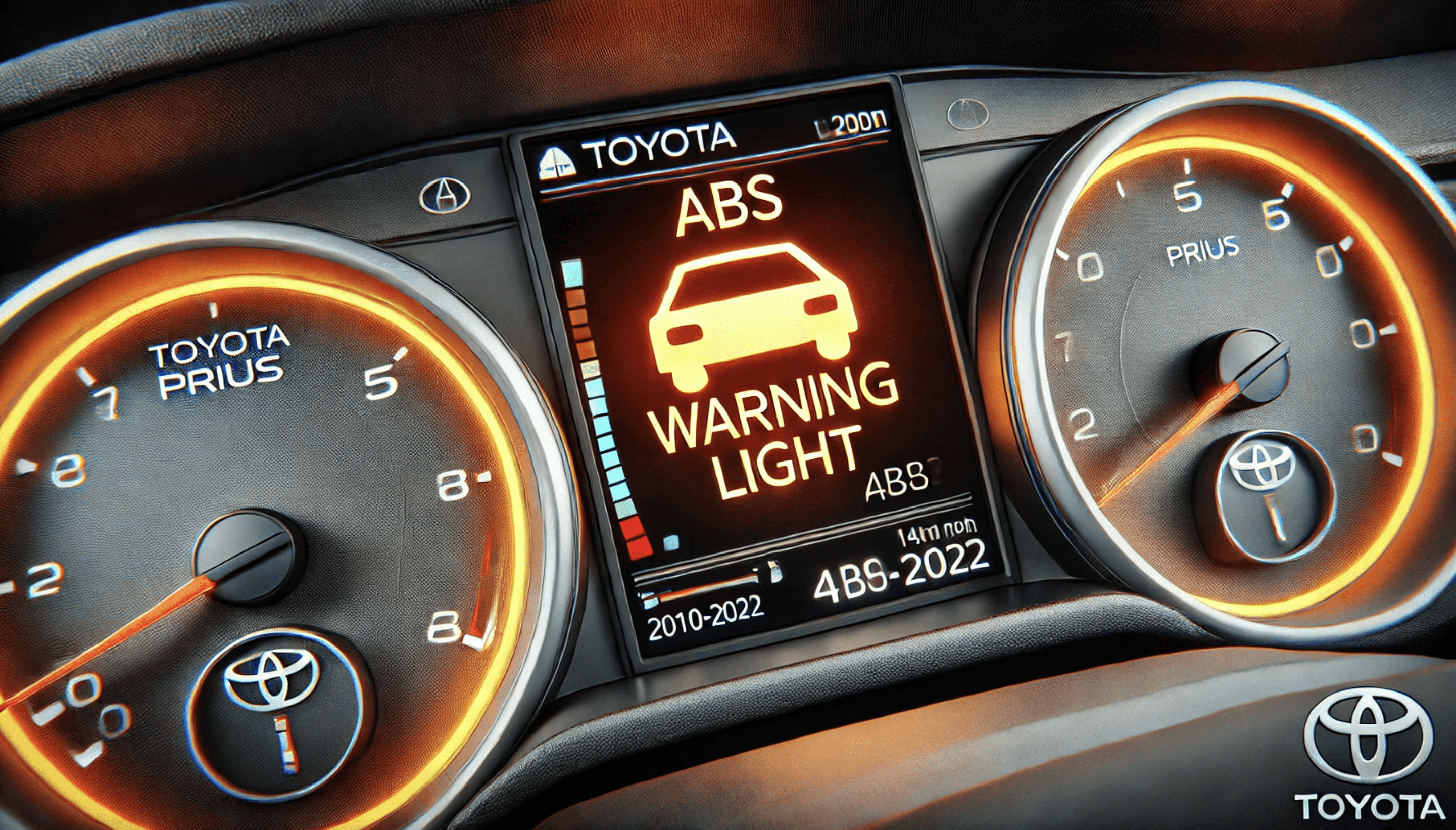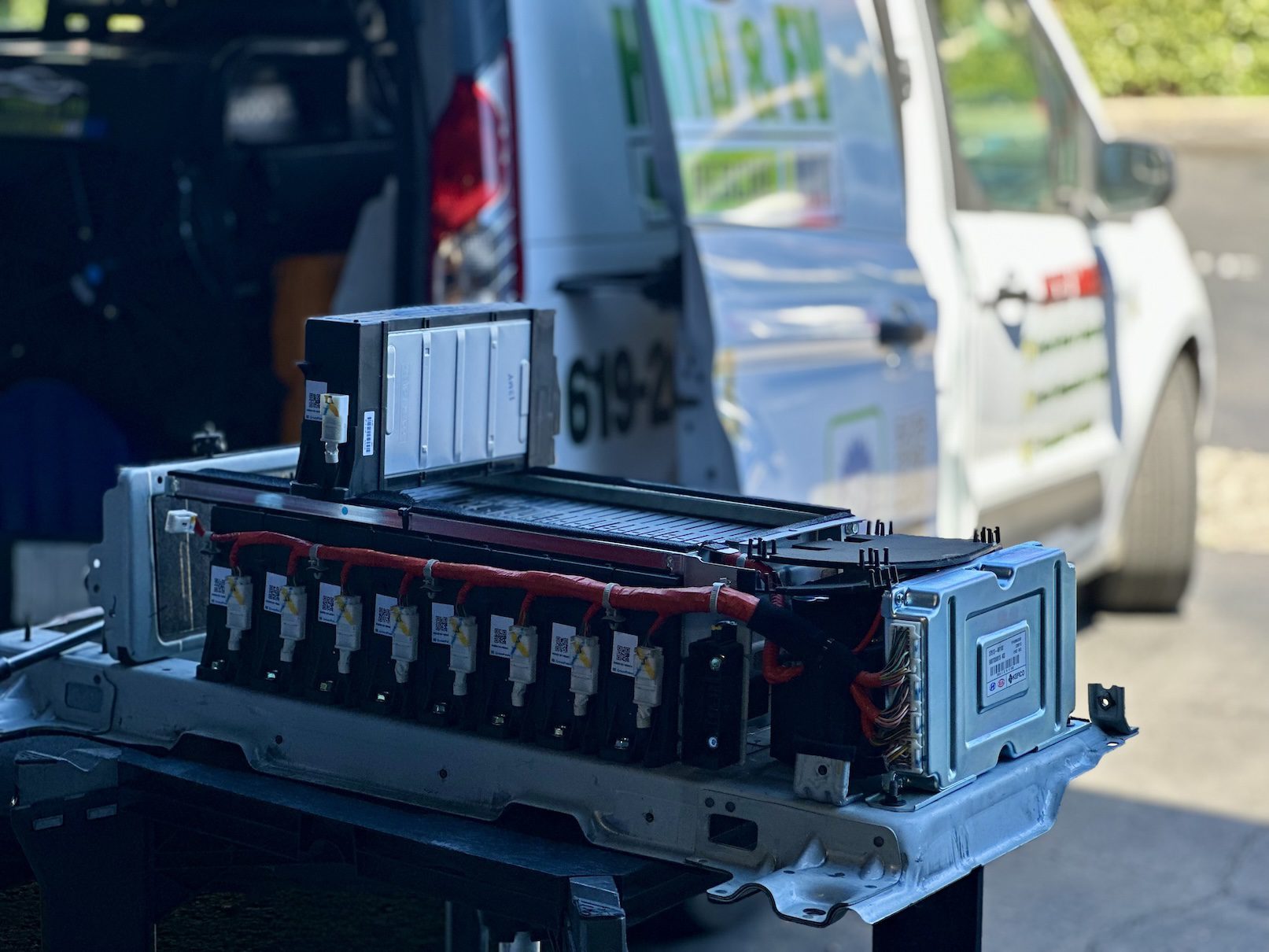What is the Toyota Prius ABS System?
The Toyota Prius is a reliable and efficient hybrid vehicle, but like any car, it has its own set of issues. One of the most common and potentially dangerous problems Prius owners face is related to the Anti-lock Braking System (ABS). If your Prius is experiencing braking issues, warning lights on the dashboard, or reduced braking efficiency, it may be due to a failing ABS system. In this guide, we’ll explore the causes, symptoms, and solutions for Prius brake ABS issues.
The Anti-lock Braking System (ABS) is a crucial safety feature designed to prevent wheel lockup during sudden braking. It allows the driver to maintain control of the vehicle, especially in slippery or emergency conditions. In the Toyota Prius, the ABS system works in conjunction with the regenerative braking system, which recharges the hybrid battery when slowing down.
Common Symptoms of Prius ABS Problems
If your Prius is experiencing ABS issues, you may notice the following symptoms:
ABS and Brake Warning Lights – The most obvious sign is the illumination of the ABS, brake, or traction control lights on the dashboard.
Spongy or Unresponsive Brake Pedal – A faulty ABS actuator can cause inconsistent braking pressure, making the brake pedal feel soft or unresponsive.
Grinding or Whining Noises – Unusual sounds when braking could indicate issues with the ABS pump or actuator.
Increased Stopping Distance – If your Prius takes longer to stop than usual, the ABS module or hydraulic system may be failing.
Brake Pedal Pulsation – If you feel a pulsating sensation in the brake pedal while braking, it could be due to a malfunctioning ABS system.
Brake Fluid Leaks – Leaks around the ABS actuator or master cylinder could signal serious issues in the braking system.
Common Causes of Prius ABS Issues
Several factors can contribute to ABS problems in a Prius, including:
1. Failing ABS Actuator
The ABS actuator is a key component that regulates braking pressure. Over time, the actuator can fail due to wear and tear, leading to erratic braking behavior. This is one of the most common issues in older Prius models, especially in the 2010-2015 generation.
2. Weak or Failing Brake Booster
The brake booster assists in amplifying braking force. If it malfunctions, you may experience a hard or unresponsive brake pedal.
3. Faulty Wheel Speed Sensors
The ABS system relies on wheel speed sensors to monitor traction. If these sensors fail, the ABS may not engage properly, leading to potential skidding or loss of control.
4. Low Brake Fluid or Contaminated Fluid
Dirty or low brake fluid can cause hydraulic system malfunctions, affecting the ABS system’s performance.
5. Malfunctioning ABS Pump
The ABS pump is responsible for regulating hydraulic pressure in the brake system. If the pump fails, you may experience inconsistent braking performance.
6. Electrical Issues or Faulty Wiring
The ABS system is electronically controlled. Faulty wiring or corroded connections can cause warning lights and brake performance issues.
How to Diagnose Prius ABS Problems
If you suspect an ABS issue, follow these steps to diagnose the problem:
Check the Warning Lights – If the ABS light is on, use an OBD2 scanner to read diagnostic trouble codes (DTCs).
Inspect the Brake Fluid Level – Ensure the brake fluid is at the proper level and not contaminated.
Listen for Unusual Noises – Pay attention to any grinding or whining sounds while braking.
Check for Leaks – Look for fluid leaks around the ABS actuator and master cylinder.
Test the Brake Pedal Feel – If the pedal is spongy or unresponsive, it could be due to ABS failure.
Solutions for Prius ABS Issues
1. ABS Actuator Replacement
If your ABS actuator has failed, replacing it is often the best solution. This is a common repair for many Prius owners and can be expensive if done at a dealership. However, some auto shops and hybrid specialists offer more affordable options.
2. Brake Booster Repair or Replacement
If the brake booster is malfunctioning, it should be replaced to restore normal braking performance.
3. Replacing Faulty Wheel Speed Sensors
If a wheel speed sensor is faulty, replacing it can restore ABS functionality.
4. Flushing and Replacing Brake Fluid
Contaminated brake fluid should be replaced to ensure optimal performance of the braking system.
5. Checking and Repairing Electrical Wiring
If there is an electrical issue, repairing faulty wiring or replacing corroded connections can resolve the problem.
How Much Does a Prius ABS Repair Cost?
The cost of repairing the ABS system on a Prius depends on several factors, including the model year of the vehicle and whether reconditioned or brand-new ABS parts are used.
If you opt for a reconditioned ABS actuator or brake booster, the cost typically ranges between $1,500 to $2,000.
If you choose a brand-new ABS component, the cost can go up to $3,000 or more.
Additional costs may apply for labor and diagnostics, depending on the repair shop.
It’s always best to consult a hybrid repair specialist to get an accurate estimate based on your Prius model and the specific issue affecting your ABS system.
When to Seek Professional Help
While some ABS issues can be diagnosed and fixed at home, it’s best to consult a hybrid repair specialist for complex problems. If your Prius has ongoing brake problems, professional diagnostics and repairs can ensure safety and prevent further damage.
The ABS system is a critical safety component in your Prius, and ignoring braking issues can put you at risk. By understanding the common symptoms, causes, and solutions for Prius brake ABS issues, you can take the necessary steps to keep your vehicle safe and reliable. If you suspect an issue, addressing it early can save you from expensive repairs and potential accidents.
If you need professional hybrid repair services, be sure to contact a trusted hybrid vehicle repair specialist like HEV Rescue to diagnose and fix the issue properly.




